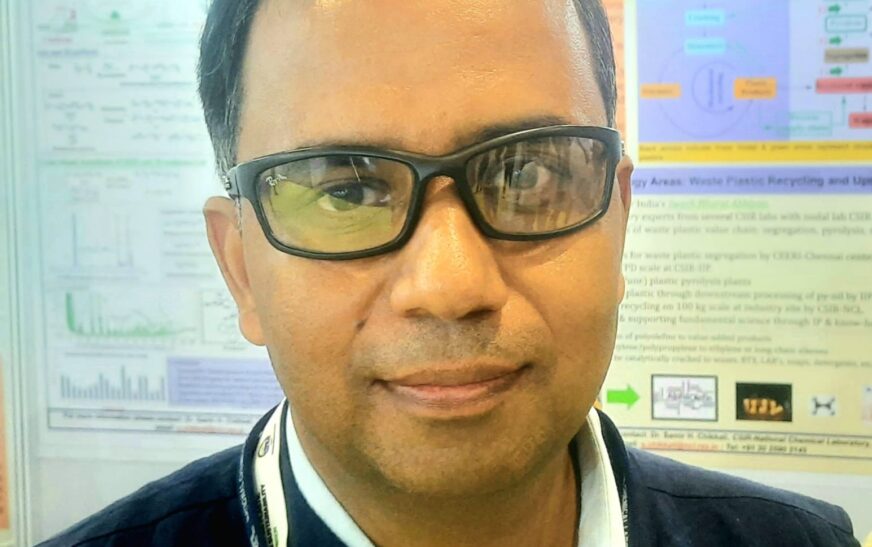The National Chemical Laboratory (NCL), situated in Pune, India, is celebrated as a premier research institution under the auspices of the Council of Scientific and Industrial Research (CSIR). Since its establishment in 1950, NCL has forged a distinguished path in chemical research and innovation, encompassing diverse scientific disciplines such as organic chemistry, materials science, chemical engineering, and biotechnology.
NCL’s world-class facilities and cutting-edge research initiatives magnetize top-tier scientists and researchers from around the globe. The laboratory has earned international acclaim for its pioneering contributions in green chemistry, polymer science, and catalysis. Collaborating closely with industry partners, NCL is at the forefront of developing sustainable technologies and innovative solutions to address complex industrial challenges.
Beyond its research endeavors, NCL nurtures talent and disseminates knowledge. It hosts advanced training programs and cultivates a vibrant academic environment that fosters interdisciplinary collaboration and intellectual growth. The institution’s prolific output of patents and publications underscores its commitment to advancing scientific knowledge and shaping the future of the chemical sciences on a global scale.
With a steadfast commitment to innovation, sustainability, and scientific excellence, NCL continues to drive technological advancements that have far-reaching impacts on society and industry. Its contributions play a pivotal role in enhancing India’s socio-economic landscape and contributing to global scientific progress.
In an exclusive interview with The Interview World, Dr. Samir H. Chikkali, Senior Principal Scientist & Prof. (ACSIR) in the Polymer Science and Engineering Division at CSIR-NCL, sheds light on his groundbreaking project focused on converting waste plastic into diesel. Dr. Chikkali discusses the project’s innovative aspects, its journey towards commercialization, the significant market opportunities it presents, and its potential to mitigate pollution and reduce the carbon footprint. His insights highlight NCL’s proactive approach to translating research into impactful solutions that address pressing environmental challenges while fostering sustainable development.
Q: Could you please explain the development of your waste plastic to diesel model? Specifically, what kind of research and development efforts have you undertaken to ensure that the end product is both highly efficient and economically viable?
A: In our plastic-to-diesel project, our primary goal is to recycle polyethylene and polypropylene waste effectively. These two types of polymers are sourced and processed at the IIP Dehradun facility, which operates at a scale of one tonne per day. The process includes two critical stages, meticulously designed to transform these materials into high-quality BS6 grade diesel. This initiative not only addresses environmental concerns but also contributes to sustainable fuel production.
Q: Have you pursued or are you planning to pursue the commercialization of this patent?
A: We’ve developed this process in partnership with the Gas Authority of India Limited (GAIL). It’s currently operational at a one-tonne per day capacity, with potential for scalability up to 10 tonnes per day or beyond. This innovative solution is now open for licensing opportunities, offering industry partners the chance to integrate cutting-edge technology into their operations. Although not yet commercialized, it stands poised for rapid deployment through strategic licensing agreements.
Q: What are the key market opportunities you foresee in this industry, and how do you plan to leverage them?
A: With sustainability taking the forefront of global agendas, numerous opportunities emerge for innovative solutions. Addressing the pressing issue of waste plastic presents substantial potential for our advanced solution, positioning us at the forefront of sustainable practices and market leadership in environmental stewardship.
Q: How do you envision your solution addressing the plastic pollution problem in the country?
A: Our commitment extends beyond rhetoric—we are poised to tackle plastic pollution head-on. Leveraging cutting-edge CSIR-certified segregation technology and other trusted sources, we will transform polyethylene and polypropylene waste into diesel fuel. This innovative initiative underscores our dedication to sustainability, aligning environmental stewardship with operational excellence. By repurposing waste materials into valuable resources, we not only mitigate ecological impact but also drive forward-thinking solutions that benefit both our organization and the planet.
Q: Given the rising global carbon footprint, do you believe your plastic conversion technology will also contribute to addressing this critical environmental issue?
A: In every operational process, energy consumption inevitably leads to a carbon footprint. The pivotal consideration is the origin of this energy. At our facility, we have implemented an integrated approach where emissions produced are recycled to heat our operations, showcasing our dedication to sustainable practices.
While this integration represents a significant step towards minimizing our environmental impact, it’s essential to acknowledge that our operations still necessitate energy consumption, which, in turn, involves carbon emissions from energy production elsewhere. This ongoing balance underscores our continuous efforts to mitigate environmental impact while striving for greater efficiency and sustainability in our operations.








